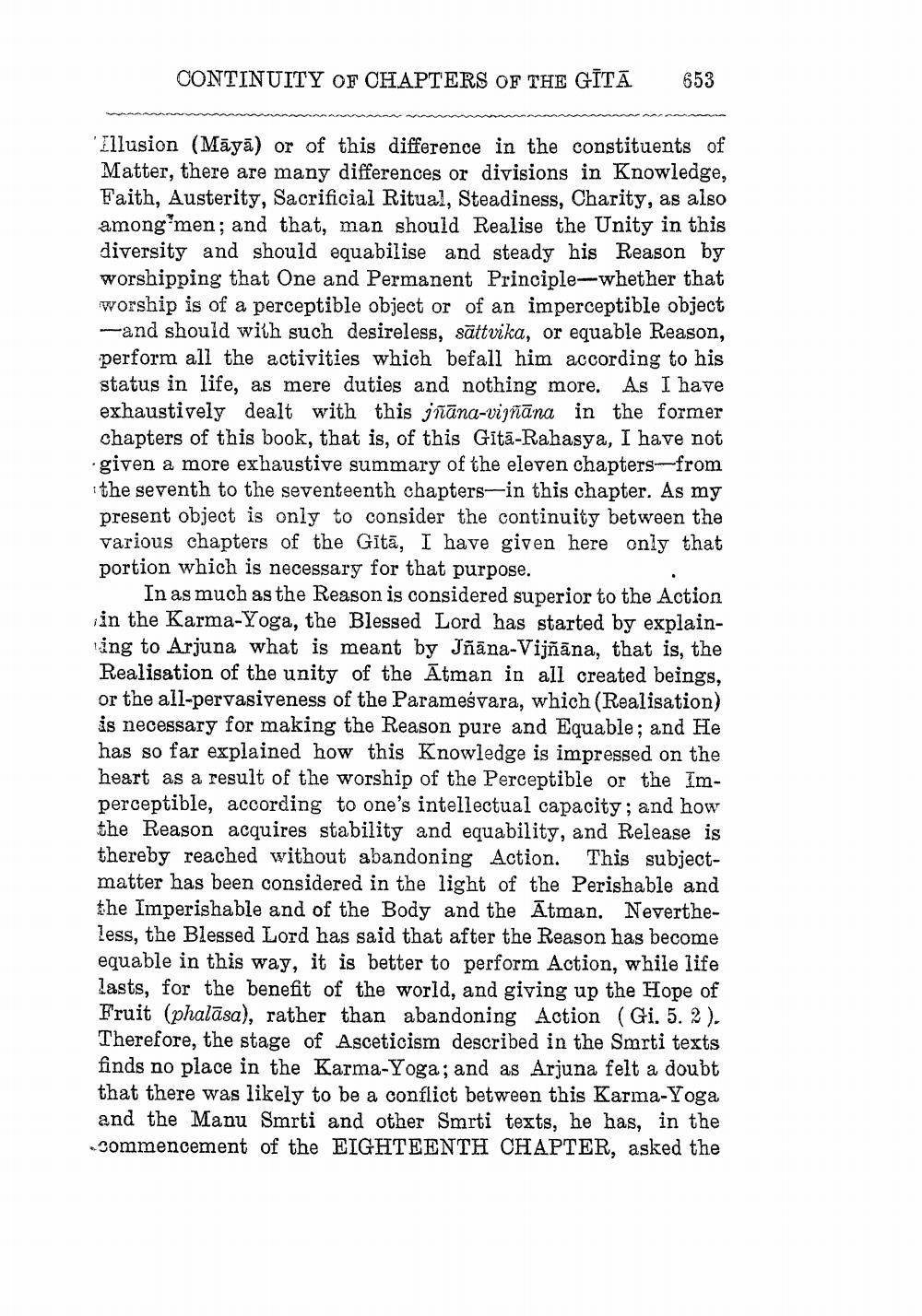________________
CONTINUITY OF CHAPTERS OF THE GĪTĀ.
653
T
Illusion (Māyā) or of this difference in the constituents of Matter, there are many differences or divisions in Knowledge, Faith, Austerity, Sacrificial Ritual, Steadiness, Charity, as also among men; and that, man should Realise the Unity in this diversity and should equabilise and steady his Reason by worshipping that One and Permanent Principle-whether that worship is of a perceptible object or of an imperceptible object
and should with such desireless, sättvika, or equable Reason, perform all the activities which befall him according to his status in life, as mere duties and nothing more. As I have exhaustively dealt with this jñāna-vijñāna in the former chapters of this book, that is, of this Gītā-Rahasya, I have not given a more exhaustive summary of the eleven chapters--from the seventh to the seventeenth chapters-in this chapter. As my present object is only to consider the continuity between the various chapters of the Gītā, I have given here only that portion which is necessary for that purpose.
In as much as the Reason is considered superior to the Action in the Karma-Yoga, the Blessed Lord has started by explaining to Arjuna what is meant by Jñāna-Vijñāna, that is, the Realisation of the unity of the Atman in all created beings, or the all-pervasiveness of the Parameśvara, which (Realisation) is necessary for making the Reason pure and Equable; and He has so far explained how this Knowledge is impressed on the heart as a result of the worship of the Perceptible or the Imperceptible, according to one's intellectual capacity; and how the Reason acquires stability and equability, and Release is thereby reached without abandoning Action. This subjectmatter has been considered in the light of the Perishable and the Imperishable and of the Body and the Atman. Nevertheless, the Blessed Lord has said that after the Reason has become equable in this way, it is better to perform Action, while life lasts, for the benefit of the world, and giving up the Hope of Fruit (phalāsa), rather than abandoning Action (Gi. 5. 2). Therefore, the stage of Asceticism described in the Smrti texts finds no place in the Karma-Yoga; and as Arjuna felt a doubt that there was likely to be a conflict between this Karma-Yoga and the Manu Smrti and other Smrti texts, he has, in the commencement of the EIGHTEENTH CHAPTER, asked the




